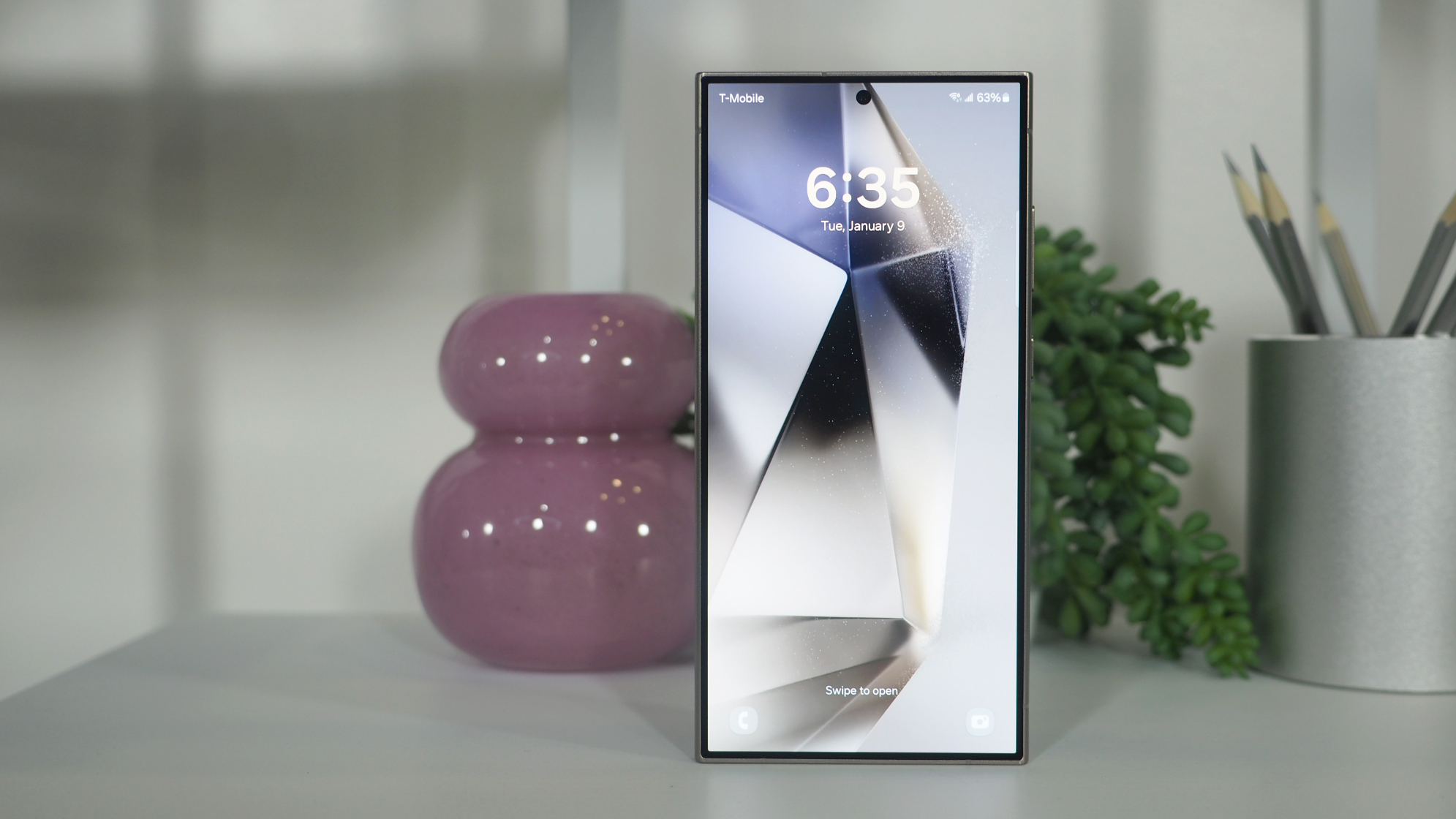
I've been living with the Samsung Galaxy S24 Ultra for this review for a whole week now – and ever since I pulled the 2024 flagship out of its neatly appointed box I've honestly been enamoured by it. It's only taken a matter of days to convince me that this is likely the best Android phone you'll be able to get your hands on in 2024, simply because it does so much so very well – with a handful of minor drawbacks here and there.
While last year's Galaxy S23 Ultra was also a fantastic device – one that ranked highly in T3's best phones list – it was a fairly marginal upgrade over its S22 Ultra predecessor. That's not the story with the Galaxy S24 Ultra, though, as the latest handset refines the formula to the maximum, bringing with it design changes and hardware developments that just make a whole heap more sense.
From its now flat-panel display, to further camera hardware developments, a new titanium metal build (and set of neutral colourways), and Google Pixel 8 Pro-rivalling artificial intelligence features, the Samsung Galaxy S24 Ultra has its sights set firmly at the top. It's not without competition, of course, but this titanium titan stands out in so many ways and, for me, makes it the jewel in Android's crown.
Samsung Galaxy S24 Ultra: Price & Availability
Impressively, despite economic conditions, the Galaxy S24 Ultra costs the same as its equivalent S23 Ultra did at launch. That's a £1,249 / $/1,199 / AU$1,949 asking price for the 256GB storage model.
Get your pre-orders in up to and including the 30 January, however, and direct from Samsung you'll net double the storage for free when the handset goes on sale from 31 January. That means 512GB at no extra cost, plus there are special edition colours to pick from Samsung's store too.
Samsung Galaxy S24 Ultra review: What's New?
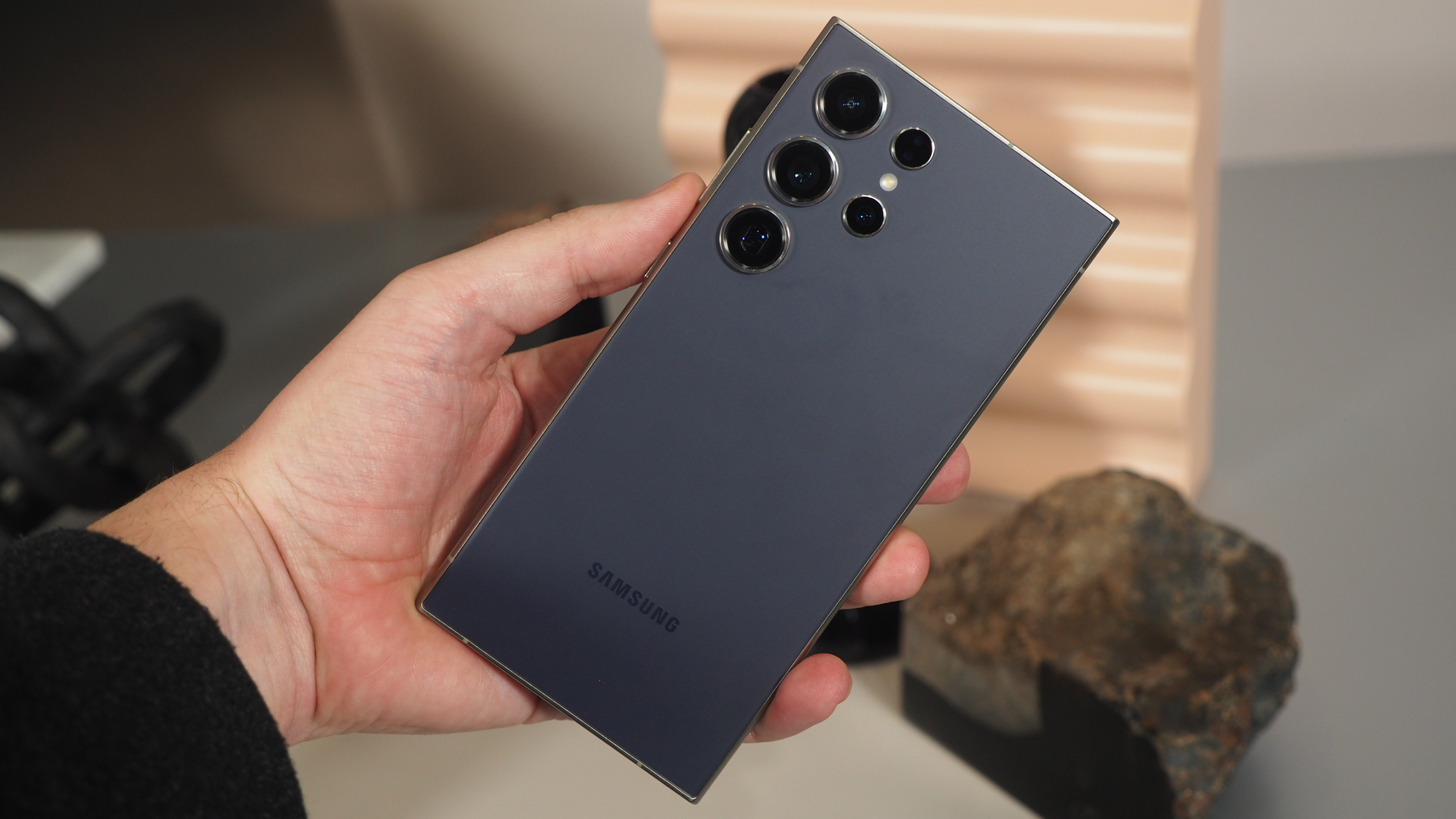
- Titanium frame build
- Samsung Galaxy AI features
- 50-megapixel 5x zoom lens (replaces 10x)
- Flat panel display with brighter 2600 nit output
While that asking price certainly doesn't make this a budget device, I do think it represents good value considering the upgrades this 2024 model brings to the table. And with Apple's equivalent iPhone 15 Pro Max even pricier, Samsung's offering feels well positioned.
The first and most obvious of those upgrades to me is the flat-panel display – curved is falling out of favour, it would seem – which makes logical sense for using the S24 Ultra's integrated S Pen stylus (which is also slightly redesigned and a little thinner than its predecessor's as a result). I'm not a major S Pen user, mind, but that's down to personal preference – and I know many former Galaxy Note and current Ultra users find it one of the best features.
Beyond the screen change, however, it's that titanium build which is particularly eye-catching – and what most people have asked me about when seeing the handset for the first time. It's a very different finish compared to its predecessor, and is far more matte and subdued – but also physically tougher. It's a wholly different look to the smaller Galaxy S24 and S24 Plus models, too, which have a little more punch to their colours (personally I prefer the added verve of those handsets).
Of everything, however, the feature change I've found most significant of the lot is the S24 Ultra's abandoning of its predecessor's 10x optical zoom lens, replacing it with a 5x zoom instead – but one that, at 50-megapixels, is far more resolute and far better quality than the outgoing optic and 10MP sensor. The 10x is still available as a digital zoom, but is actually more capable than before given the upgrade in the sensor's quality.
Also on the photography front is the addition of Galaxy AI features. These artificial intelligence additions allow for Google Pixel 8 Pro-like 'Magic Eraser' features, so you can use Samsung's 'Generative Edit' to resize, remove or move subjects/objects within a shot. This requires cloud-based connectivity as it's so heavyweight in operation that it can't be performed on-device (and has the same hit-and-miss results as Google's offering too in my view). Galaxy AI goes deeper than this too, with a variety of on-device live translations, transcriptions, and Circle to Search features.
Samsung Galaxy S24 Ultra review: Design & Display
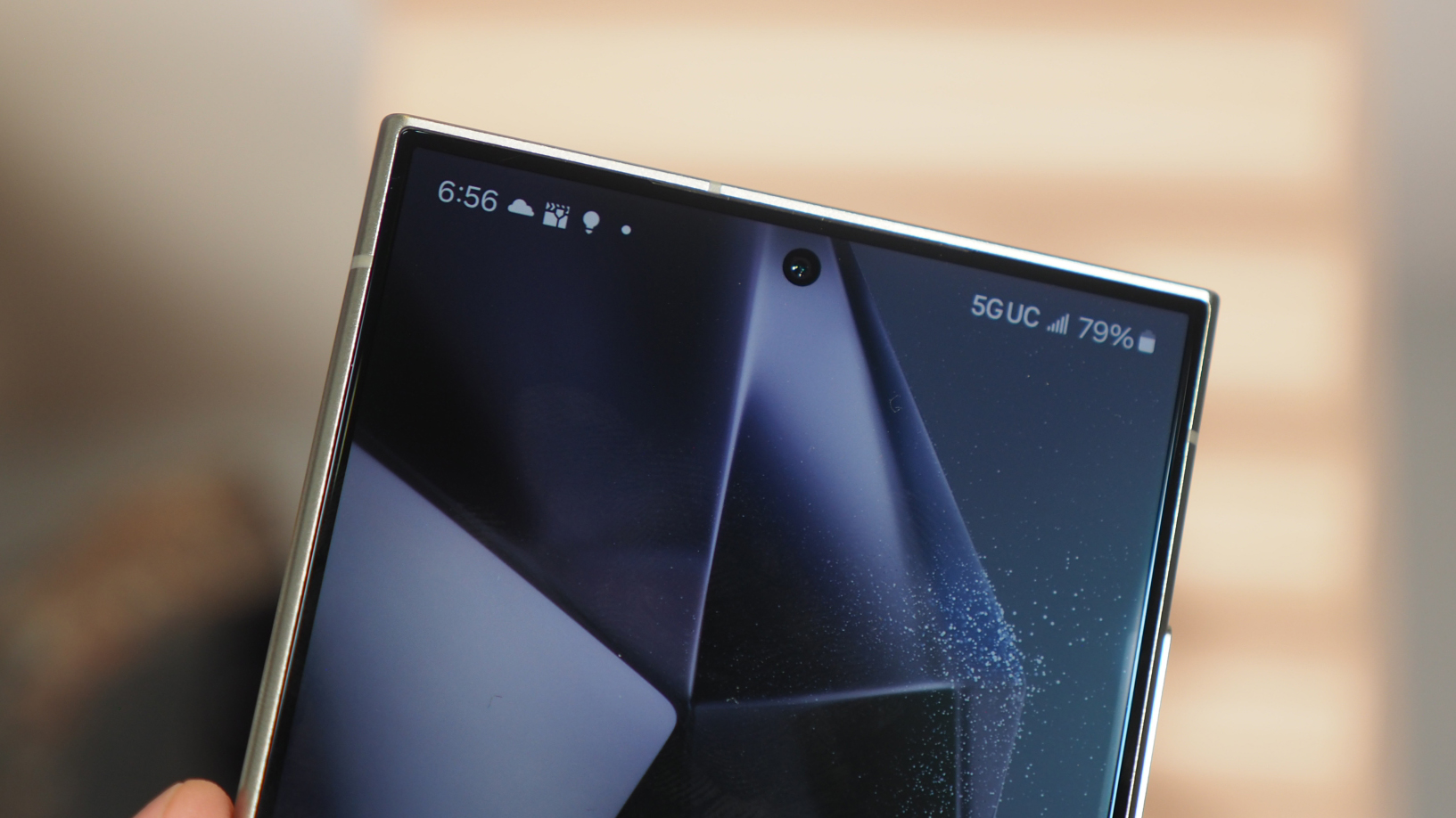
- Titanium Violet, Titanium Yellow, Titanium Black, Titanium Grey
- Flat 6.8-inch AMOLED panel, 2600 nits peak brightness
- 1440 x 3088 resolution, 1-120Hz refresh rate
- IP68 water/dust resistance
I thought the Galaxy S24 Ultra looked superb at first sight, which I had first seen prior to the big Galaxy Unpacked reveal at a behind-closed-doors event. The four main colours – Titanium Violet, Titanium Yellow, Titanium Black, Titanium Grey – look a bit washed-out where the more prominent yellow and purple hues are concerned, though, but I think my Titanium Grey review unit, which is a silvery-grey finish, looks superb and is the choice pick.
The Ultra model in Samsung's range has become a bit of an icon for the figure it cuts, and while the S24 Ultra is a whisker wider (but also thinner) than before, nobody will notice this by eye. It does feel bigger in hand, though, on account of that now flat-panel display – there's no edge 'softening' from a curve. But I don't mind this as the panel's edges don't suffer contrast fall-off and the included S Pen will simply make more sense for those who use it frequently.
The display, at 6.8-inches across the diagonal, isn't fundamentally different in terms of size or resolution though. It is, however, a new display – because it's even brighter than its predecessor with a maximum peak output of 2600 nits (although that'll be recorded from an isolated section to record the peak). Still, that's a massive figure that's approaching the levels of the best OLED TVs. The refresh rate maxes out at 120Hz but is also variable down to 1Hz in order to save battery as needed.
Adding to the titanium toughness, the S24 Ultra is coated in Corning Gorilla Glass Armor, which is said to be stronger than the brand's Victus 2 finish, but also reduces reflections by up to 75%. I'm not sure the dreary United Kingdom has seen enough sunlight for me to spot a difference in reflective quality just yet, but a quick jaunt to sunny Barcelona showed its worth. Clearly this is a great feature for the (hopefully) incoming summertime.
It's the increased toughness factor that I most appreciate though, especially as someone who tests phones on a weekly basis and who often sees lesser handsets damage quickly (even just from repeat insertion/extraction to pocket). Thus far – and I know it's only one week in – the S24 Ultra is still looking pristine. But, just to be sure, best grab one of the best S24 Ultra cases with your purchase too (S23 Ultra ones won't fit, given the change in screen).
Samsung Galaxy S24 Ultra review: Performance & Battery
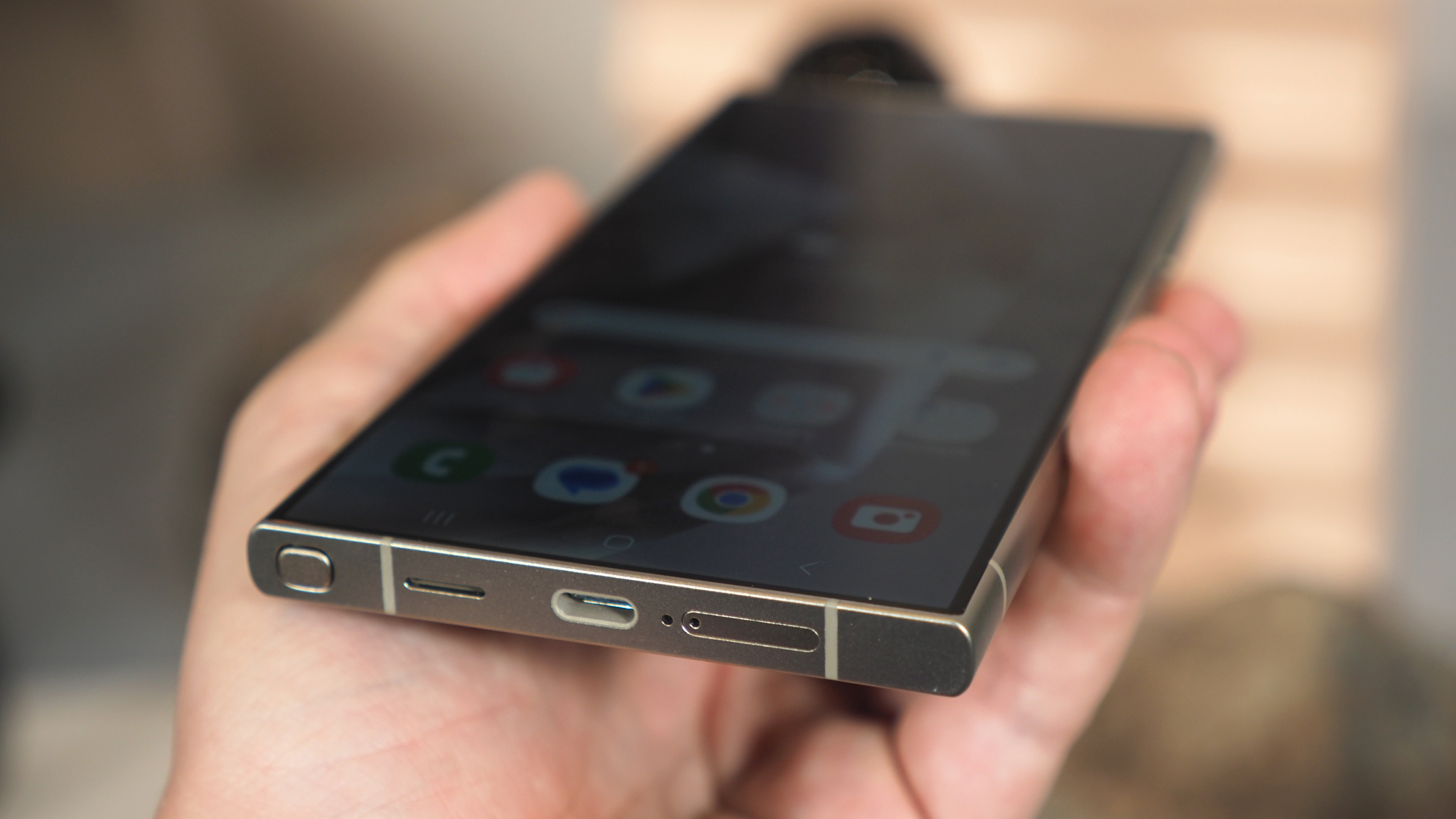
- Qualcomm Snapdragon 8 Gen 3 processor, 12GB RAM
- 5,000mAh battery, 45W charging (15W wireless)
Before the official launch there were rumours aplenty about whether Samsung would opt for its in-house Exynos silicon to run the Galaxy S24 Ultra's core operations, or opt for the well-established partnership the company has with Qualcomm.
I'm pleased to say it's the latter: the Snapdragon 8 Gen 3 processor for Galaxy (that meaning it's tuned for Samsung, i.e. overclocked) is under the hood for optimum power that can't be bettered right now. That's not to say Exynos isn't used in the range, however, it's just elsewhere: the base S24 and size-up S24 Plus will use Exynos 2400 in many regions, which I'm glad is avoided in the Ultra as I've found previous-gen versions (such as that in the S23 Fan Edition) to not provide very good battery life.
Speaking of which, the S24 Ultra's battery remains the same 5,000mAh capacity cell, so no change compared to its predecessor, with the same USB-C charging (at 45W). It's just about quick enough, but I do wish Samsung would re-invest in pursuing yet faster-charging options – especially when its competition is just so much further ahead in this regard.
Whenever I test one of the best Samsung phones, I always have to give them a little grace period to settle down. Battery life was pretty volatile for the first couple of days of using the S24 Ultra, as is typical, but I've found that the system settles down by assigning certain apps to the 'sleep stack' so that longevity is actually very solid per charge. Not the best you'll get of any phone on the market, but easily good enough for a full day of high-end use.
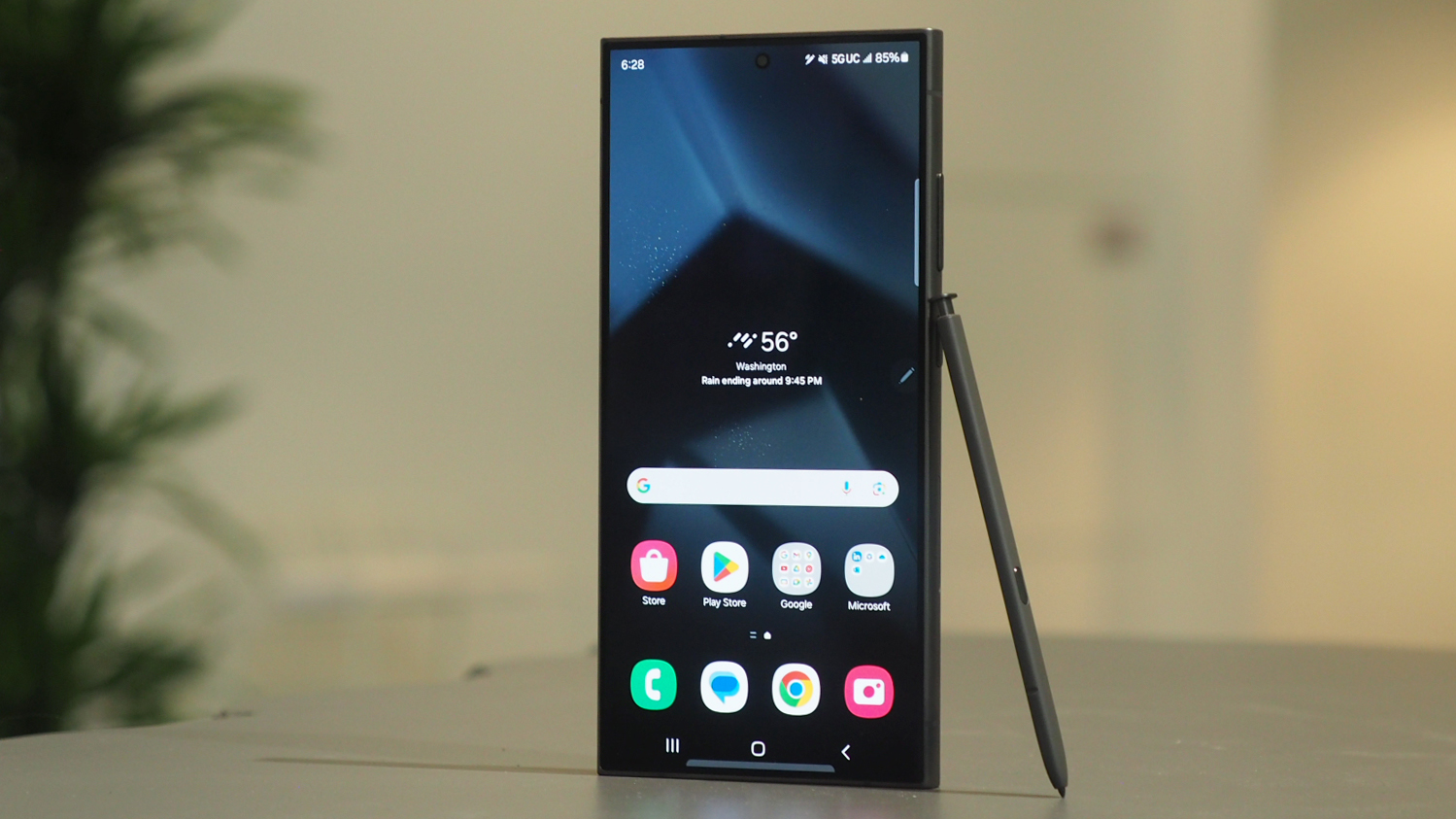
For example on a day when I travelled to Barcelona for work, waking up at 5am, I was able to use the device part-time as a mobile hotspot, use Bluetooth to play my favourite tunes (to the magnificent Bose QuietComfort Ultra Headphones), play some mobile games, browse some pages, and do various degrees of work. After 8 hours the battery had dropped 40%, which remained consistent: by 10pm that day I had 20% remaining in the tank, which is great innings without needing to compromise.
Power-wise there's no doubt that the Galaxy S24 Ultra lives up to its billing too: unlike with the Google Pixel 8 Pro, I've been able to get silky smooth gaming across a variety of titles, from go-to favourites such as South Park: Phone Destroyer, to new titles such as Plants V Zombies 3 and Mighty Doom (the last of which, in particular, is rather demanding based on my experiences playing it on other devices). There's a little heat from the S24 Ultra's body, sure, but nothing of concern.
When it comes to the suite of Galaxy AI features I'm also largely impressed. I must say, however, that many equivalents I've been using on Google Pixel devices for some time. The live transcription, for example, doesn't feel new new, but it is great to have on a Galaxy product. It can even translate from 13 languages which is pretty amazing – whether written or spoken. I used it in a mock-up scenario over a phone call, speaking in English to a Korean speaker, and while there's a natural pause while the device reads back in your local language, it's still mighty impressive. It's the photo-based features that are more hit-and-miss overall, as I'll get into below.
Samsung Galaxy S24 Ultra review: Cameras
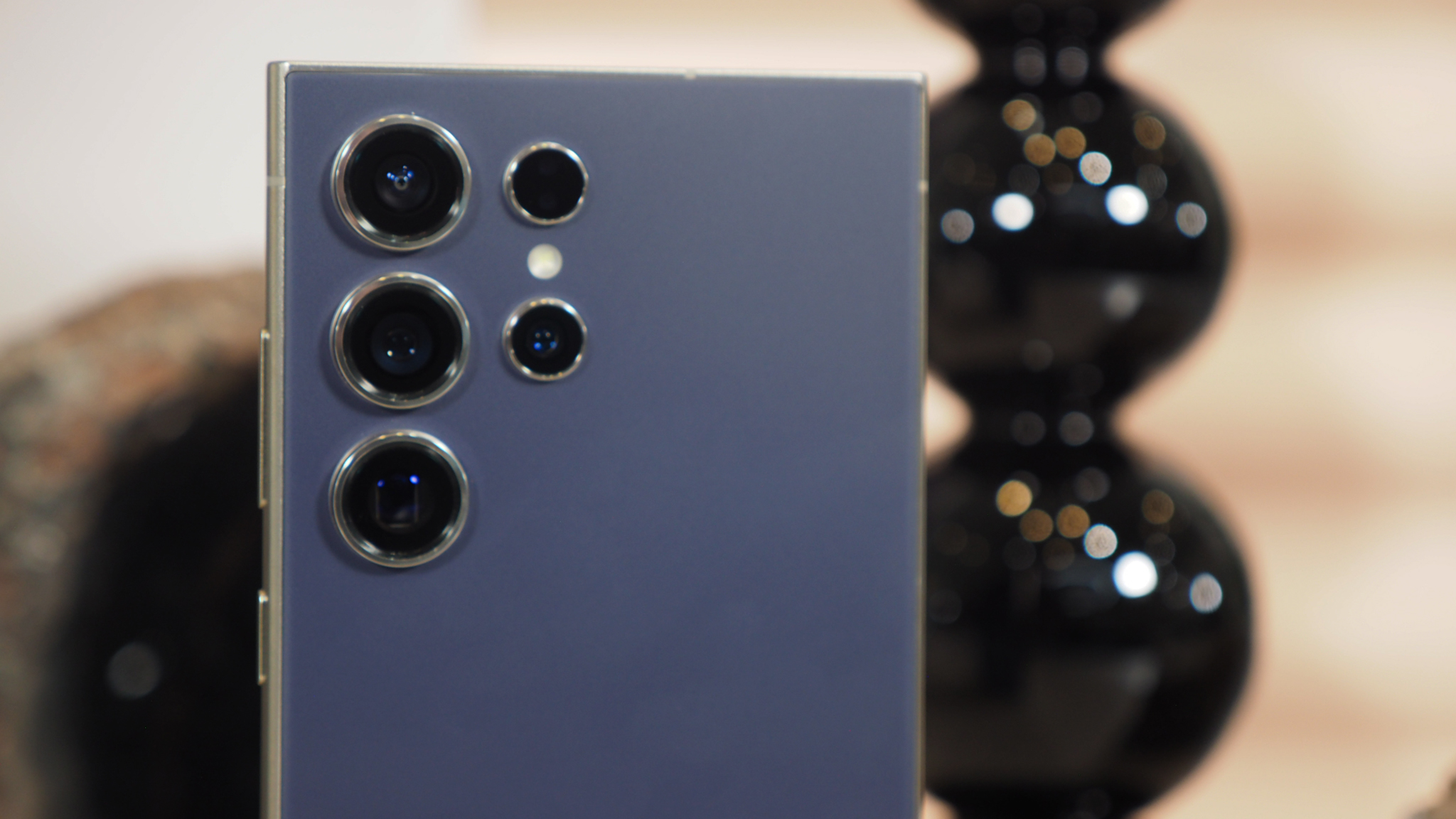
- Main (24mm): 200-megapixel, f/1.7 aperture, 1/1.3in sensor size, optical stabilisation (OIS)
- Zoom (5x, 120mm): 50MP, f/3.4, 1/1.56in, OIS
- Zoom (3x, 70mm): 10MP, f/2.4, 1/3.52in, OIS
- Wide (13mm): 12MP, f/2.2, 1/2.55in
While the S24 Ultra's rear may look identical to its predecessor's (because it is, ignoring the titanium finish and new colours anyway), it's what's within that assortment of lenses that's impressed me more than before. That's because Samsung has, finally, dropped the 10x optical zoom lens from the equation, presumably because data revealed that people just don't really use such significant optical zooms that often (or, who knows, that its 10-megapixel quality just wasn't up to scratch).
In its place, however, is a new 5x optical zoom lens with a 50-megapixel sensor at its core, representing a much more rounded proposition for most people. The quality is honestly streets ahead of the older sensor, which was an ongoing bugbear of mine in the earlier models. It's really easy to zoom between the 0.5x, 1x, 3x, 5x and digital 10x options within the app – or even beyond, all the way up to 100x. That's all great, although I'm unsure that the 3x lens in this guise needs to exist (although it does benefit from closer-up focal capabilities than the 5x).
Samsung has been able to keep the consistency between this array of cameras really on point too, so results feel like they're borne of one camera system rather than a bunch of separates, which I really appreciate. The colours match up nicely and you needn't have to overthink in any regard – just point and shoot and let the camera do its magic.

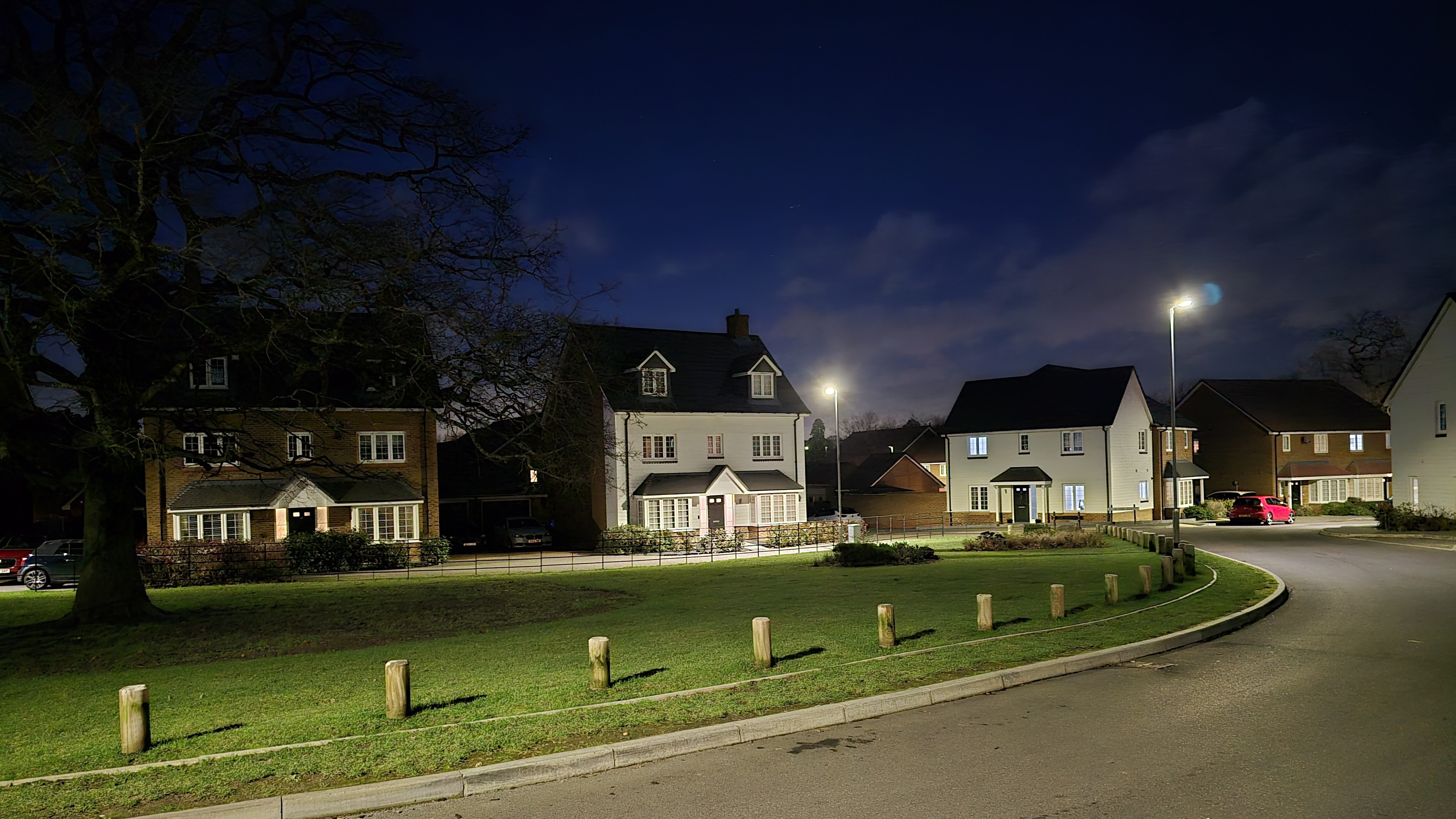
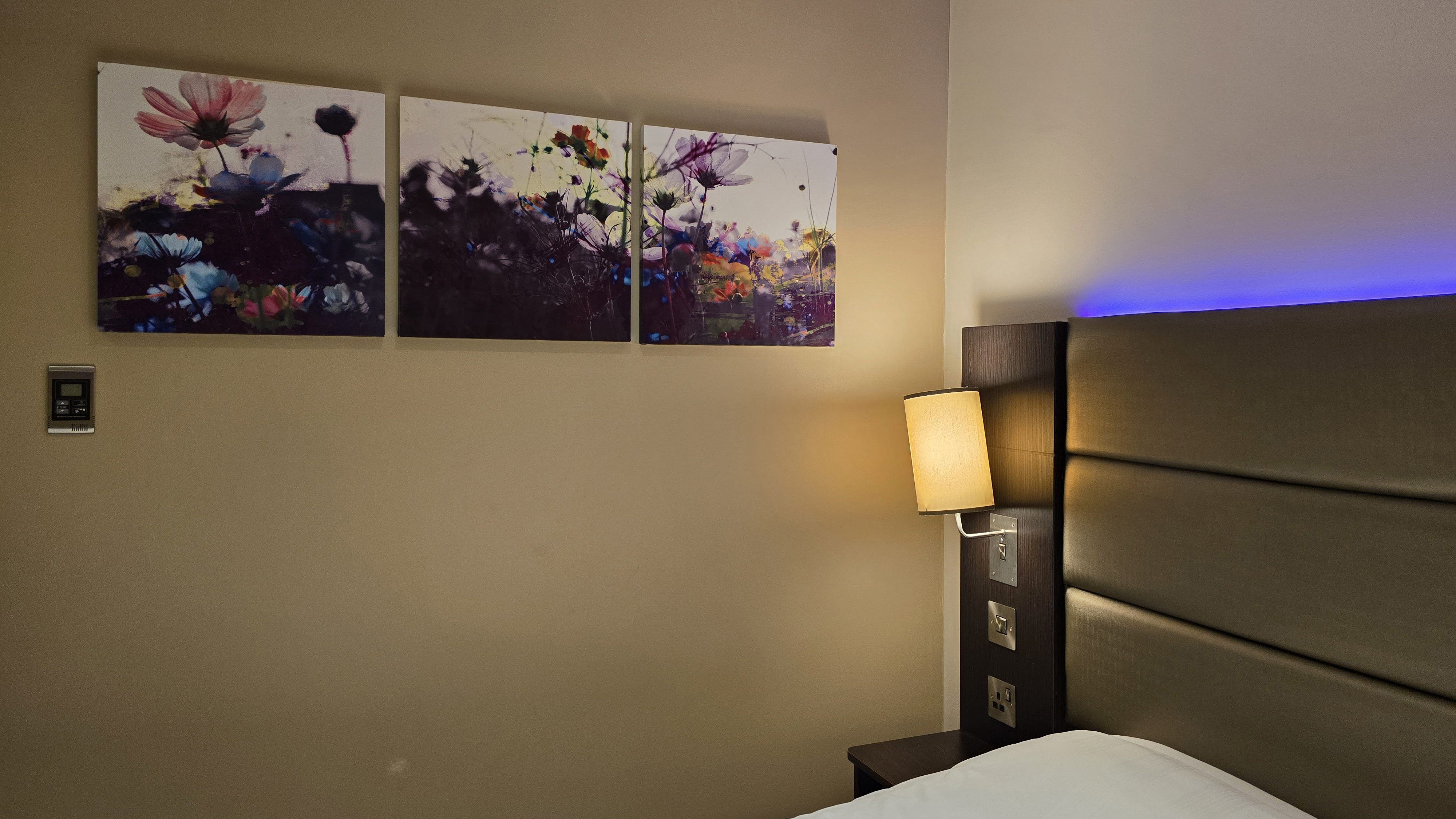




There are many more options if you want to dig deeper, including Portrait mode (for enhanced bokeh blurred background), Pro, Expert Raw, Night and many more. The whole 'Nightography' (as Samsung prefers to call it) is still exemplary: shoot in low-light and there are no issues taking snaps. If you want a more high dynamic range (HDR) effect then specifically selecting the long-exposure Night mode does wonders in balancing out shadows and highlight – and is usable handheld too.
The reason handheld shooting is so easy is thanks to the upgraded optical image stabilisation system on the S24 Ultra's main sensor (it's also present on the zoom lenses in a slightly different guise). The predecessor did a good job in keeping things nice and steady but the new camera is even more impressive. Even when using the zoom levels I've had no problems holding shots steady, to the point you can almost feel it in the on-screen viewfinder.





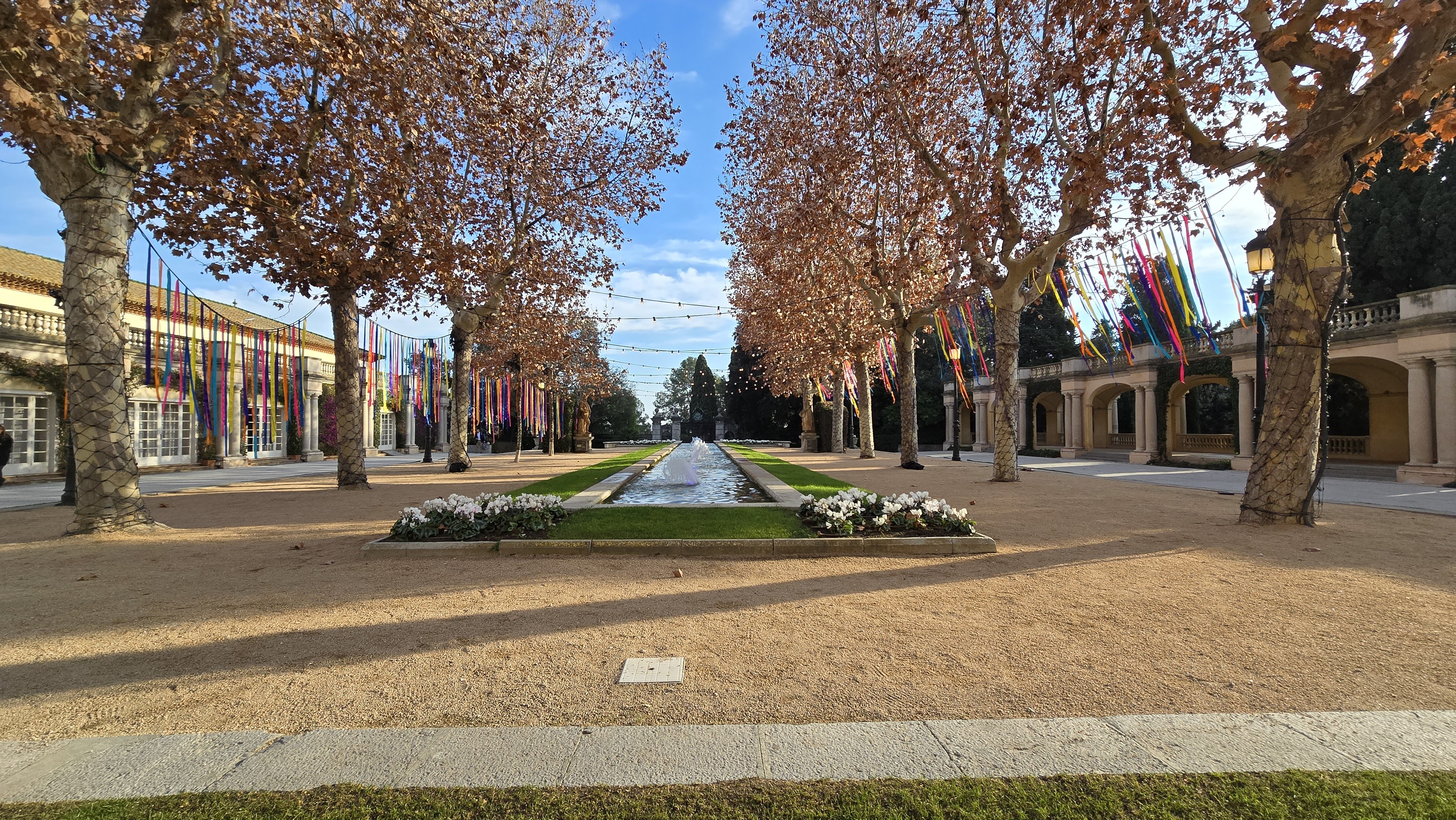
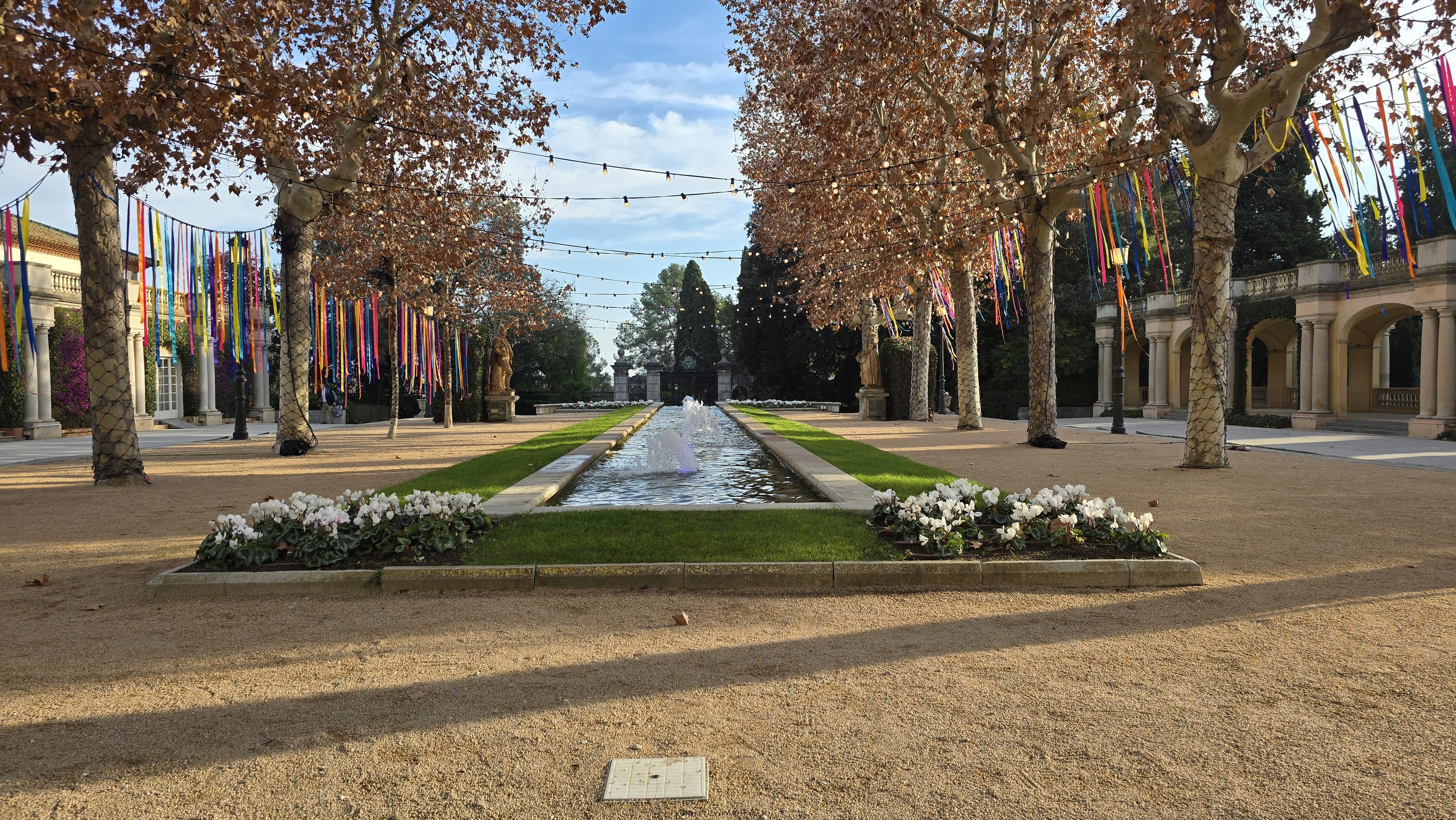


Regarding the new Galaxy AI photography features and I've found the results a mixed bag. Generative Edit, for example, can be hugely impressive in specific scenarios, able to remove distinct subjects and background replace with relative accuracy. But it's all dependent on the shot, of course. I've successfully removed flower petals from a shot with a shallow depth of field, for example, but then struggled to remove the side-positioned shadow of a shot that I assumed would be easily dealt with.
It's impressive in that few other brands offer this type of AI feature set, but just as per Google's Pixel tools, Samsung still has plenty of room for improvement. Nonetheless, I've had greater success in some other scenes, such as being able to select a jumping skater in a photo (provided by Samsung) who I was able to move higher in the frame with Photoshop-like levels of auto-fill. There's definitely scope here for these AI features to just grow and improve – and I have no doubt it'll only get better and better.
Samsung Galaxy S24 Ultra review: Verdict
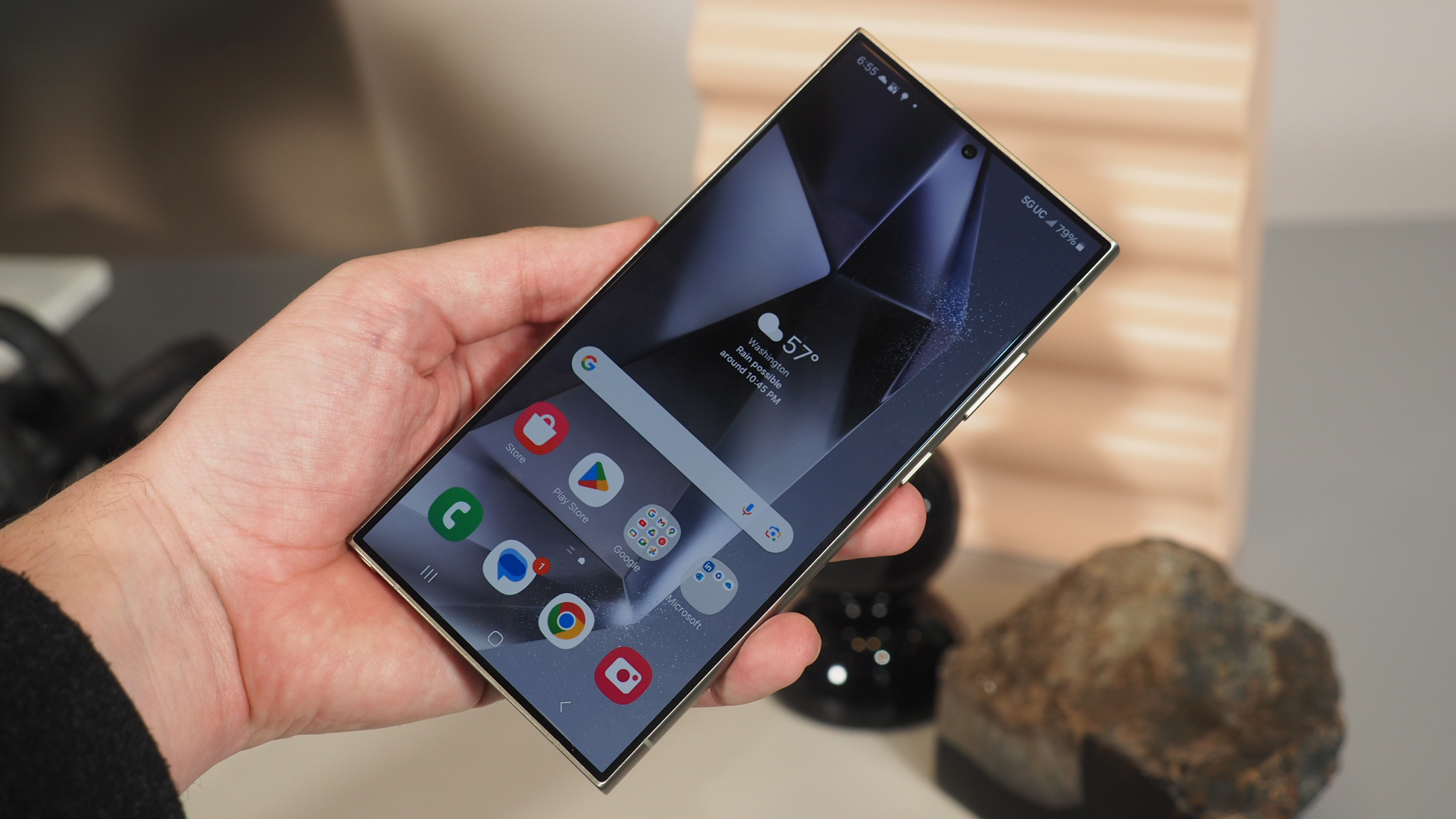
Having lived with the Galaxy S24 Ultra for a full week I'm totally sold and, frankly, more than a little bit in love with this flagship handset. I think Samsung's design and feature advancements compared to the older model elevate it to whole new heights, placing it firmly as best-of-best when it comes to Android phones.
Sure, the high asking price (thankfully there's been no year-on-year increase, though), the AI photo features not being perfect yet, the physical wide-body nature of the design being a bit anti-one-handed, and the generally dull colour options are minor weak spots – but the positives so heavily outweigh these foibles that I really don't mind.
The Samsung Galaxy S24 Ultra's finish is more durable than ever before thanks to that new titanium finish, its cameras are even more capable thanks to the new 5x optical zoom, its flat-panel display now means the integrated S Pen stylus is just much more practical, and despite strong competition this flagship really is the jewel in Android's crown for 2024. I may even have a little cry when it's sent back and then go buy my own.
Also consider
If you don't want an S Pen stylus and find the Ultra a little too large scale then Google's top-end flagship, the Pixel 8 Pro, has a lot to shout about – especially when it comes to computational photography features (many of which the Samsung now matches) – and can be picked up for even less cash.
While I wouldn't suggest the earlier S23 Ultra is necessarily a better buy, you can find that model on a significant discount (see shopping widget embedded below) so it could well make for a more sensible frugal purchase – so long as you can cope with the lower-resolution zoom lenses in the camera arrangement.







